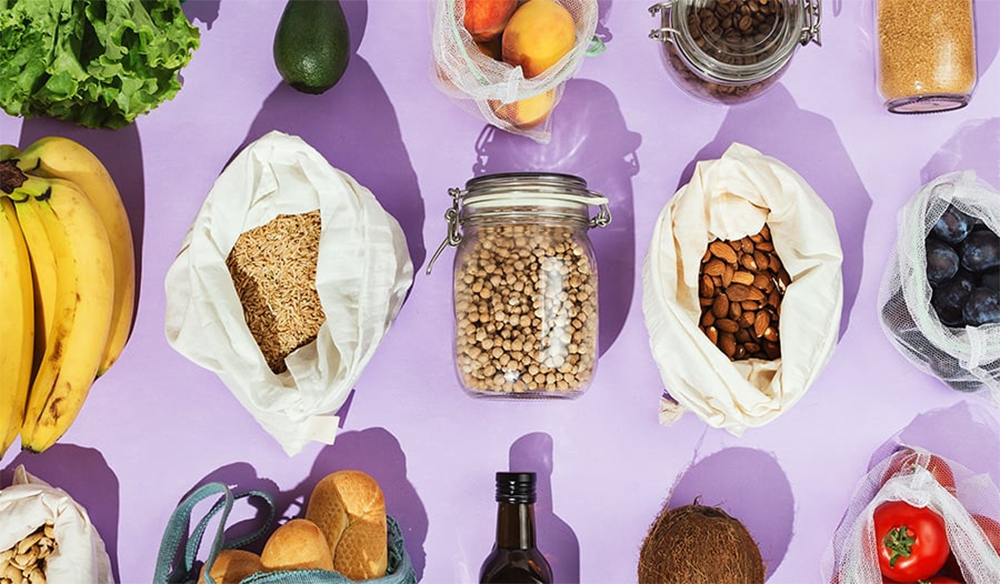“`html
15 Essential Healthy Staples to Keep in Your Kitchen
Maintaining a healthy diet becomes significantly easier when your pantry, fridge, and freezer are stocked with nutritious staples. Having these ingredients readily available ensures you can whip up a wholesome meal or snack at any time without resorting to less healthy, processed options. Below is a list of 15 healthy staples you should always keep on hand to support your well-being and make cooking at home a breeze.
Canned and Dried Beans and Lentils
Beans and lentils are nutrient powerhouses packed with protein, fiber, and essential vitamins. Dried or canned versions are affordable and long-lasting, making them perfect pantry staples. They can be used in soups, stews, salads, or as a side dish. From black beans to chickpeas to lentils, these legumes are versatile enough to form the base of many healthy meals. Opt for low-sodium canned varieties to reduce your salt intake.

Nuts, Seeds, and Their Delicious Butters
Nuts and seeds, like almonds, walnuts, chia seeds, and flaxseeds, are excellent sources of healthy fats, protein, and fiber. They’re perfect for adding to oatmeal, smoothies, or salads. Nut butters such as peanut, almond, or sunflower butter are an easy way to get healthy fats and protein into your diet. These ingredients provide heart-healthy fats and help keep you fuller for longer.

Different Types of Grains for Various Uses
Whole grains like quinoa, brown rice, oats, and farro are high in fiber, vitamins, and minerals. These grains serve as the base for many meals, from grain bowls to stir-fries. Stocking a variety of grains ensures you always have a nutritious, complex carbohydrate option to pair with protein and veggies. Grains are filling, affordable, and provide sustained energy throughout the day.
Frozen Fruits and Vegetables
Frozen fruits and vegetables are picked and frozen at peak ripeness, which locks in their nutrients. They’re convenient to keep on hand for smoothies, stir-fries, or as quick side dishes. Stock up on frozen berries, spinach, broccoli, and peas to ensure you always have access to vitamins, minerals, and antioxidants, even when fresh produce isn’t available.

Honey and Maple Syrups for Sweetening Delight
Natural sweeteners like honey and maple syrup provide healthier alternatives to refined sugar. They can be used in cooking, baking, or as a drizzle on top of yogurt, oatmeal, or pancakes. While they should still be used in moderation, these natural sweeteners offer additional nutrients, such as antioxidants in honey and minerals like manganese in maple syrup.

Apple Cider Vinegar Benefits and Uses
Apple cider vinegar is a versatile pantry staple with numerous potential health benefits, from aiding digestion to balancing blood sugar levels. It can be used in salad dressings, marinades, or as a tangy addition to sauces. With its antimicrobial properties, it’s great for gut health. Just be sure to dilute it with water if using it directly, as its acidity can be harsh.

Healthy Cooking Oils for Culinary Use
Having healthy fats like olive oil, coconut oil, and avocado oil on hand is essential for cooking and flavoring dishes. These oils are rich in heart-healthy monounsaturated and polyunsaturated fats. Olive oil, in particular, is a staple in the Mediterranean diet and is known for its anti-inflammatory properties. Use them for sautéing, roasting, or drizzling over salads.
Fermented Foods for Gut Health and Flavor
Fermented foods like sauerkraut, kimchi, and yogurt are excellent for gut health. They contain probiotics, which promote a healthy balance of gut bacteria. Fermented foods add tangy flavor to dishes and can be eaten on their own, added to sandwiches or served as a side dish. These foods can also help improve digestion and boost your immune system.

Spices and Herbs for Flavor Enhancement
Spices and dried herbs are essential for flavoring meals without adding extra calories or sodium. Staples like turmeric, cinnamon, oregano, thyme, cumin, and chili powder can enhance the taste and health benefits of your dishes. Many spices, like turmeric and cinnamon, have anti-inflammatory properties, making them a nutritious addition to your meals.

Garlic and Onions Add Flavor to Dishes
Garlic and onions are foundational ingredients in many dishes. They provide depth of flavor and have many health benefits, including boosting the immune system and reducing inflammation. These aromatic vegetables are rich in antioxidants and can help lower blood pressure. They’re long-lasting and can be stored for extended periods, making them reliable kitchen staples.

Durable Fresh Fruits and Vegetables for Longevity
Certain fruits and vegetables, such as apples, carrots, sweet potatoes, and cabbage, have a longer shelf life and can be stored for weeks without spoiling. These produce items are full of essential vitamins, minerals, and fiber, ensuring you always have healthy options on hand. They can be used in various meals, from salads to soups to roasted vegetable dishes.
Frozen Fish, Poultry, and Meat Products
Keeping frozen fish, poultry, and meat in your freezer ensures you always have a protein source available for healthy meals. Salmon, chicken breasts, and ground turkey are excellent options that can be defrosted quickly and cooked in various ways. These proteins are rich in essential amino acids, omega-3 fatty acids (in the case of fish), and other vital nutrients.

Nutritious Condiments for a Healthier Meal
Stocking healthy condiments like mustard, hot sauce, tahini, and salsa can add flavor to your meals without the extra calories or sugar found in many store-bought sauces. Tahini, made from sesame seeds, is rich in healthy fats and can be used as a dressing or sauce base. Salsa is a low-calorie option for adding flavor to meats, tacos, or grain bowls.

Eggs: Nutritious, Versatile, and Delicious Food Source
Eggs are a nutritional powerhouse, rich in high-quality protein, healthy fats, and essential vitamins like B12 and vitamin D. They’re incredibly versatile and can be used in countless recipes, from omelets to salads to baked goods. Keeping eggs on hand allows you to whip up a quick, healthy meal anytime.
Creamy Full-Fat Yogurt Delights
Full-fat yogurt is a great source of probiotics, protein, and healthy fats. It can be enjoyed on its own, with fruit, or as part of smoothies and sauces. Opt for unsweetened, plain yogurt to avoid added sugars and artificial ingredients. Full-fat varieties provide more satiating power and are perfect for maintaining a balanced diet.

Final Thoughts and Summary of Findings
Stocking your kitchen with these 15 healthy staples will set you up for success when it comes to maintaining a balanced diet. These ingredients are versatile, nutrient-dense, and easy to use in various recipes. Whether you’re whipping up a quick dinner or preparing a nourishing snack, having these essentials on hand makes healthy eating both convenient and achievable.
“`

